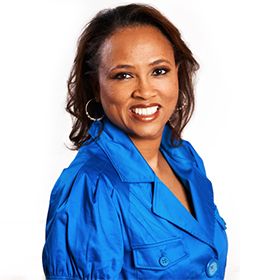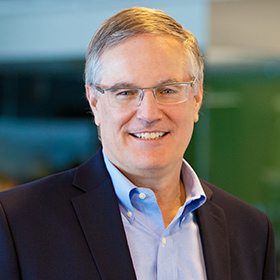While the national discussion around race was able to push forward in the wake of the murder of George Floyd, it now seems that equity has come back under fire. The Supreme Court’s toppling of Affirmative Action emboldened anti-equity opposition to flood the courts with lawsuits against diversity, equity, and inclusion (DEI) efforts. This wave included the successful shutdown of the Fearless Fund’s grant contest for Black women-owned small businesses, further helping to cast a chill on racial equity efforts in some parts of the sector. Authentic allyship in the fight to advance racial equity requires intentional and sustained effort, especially in times like now. Recently, Cheryl Dorsey, president of Echoing Green and co-chair of The Bridgespan Group's board, sat down with Jeff Bradach, co-founder and former managing partner of Bridgespan, to take stock of this moment within the social sector and explore evolving ideas around the role of white allyship when it comes to equity work and the potential of true alliance and multiracial solidarity.
Jeff Bradach: What do you make of the swirl of this moment, Cheryl? How are you experiencing the backlash against DEI, and what are you hearing from nonprofit leaders and folks in your own organization who are working with so many leaders across the country?
Cheryl Dorsey: I have to say that as an African American and as an African American nonprofit leader, it all feels familiar. We’ve seen this all before. How does it land for leaders of color in the nonprofit sector? From my perspective, it lands in two ways: funding and framing. Most of us jaded old Black folks and folks of color were clear-eyed about the window that opened after the racial reckoning. We knew that we had this temporary opportunity for both visibility and funding, and we knew it was going to close. This period of growing political consciousness, growing political support, and direct action turned out to be short-lived.
There’s also a whole framing conversation that’s going on, and if you talk to 10 people, you will probably get seven different answers. Some people are like, “I’m not bothered in this moment of backlash, we’re going to change the branding and the language, and as long as the work continues, the end goals aren’t going to change.” Then others say, “This is not right, that feels like capitulation, and we have to stand our ground.” We’re seeing both.

Building a More
Equitable Future
Visit our collection of tools and inspiration for philanthropists, nonprofits, and others working toward racial equity.
How do you think funders are thinking about it now, Jeff?
Jeff Bradach: Funders are diverse in how they’re responding. Some of it is, “Let’s keep doing the work.” But some of it is also needing to respond to the framing and the pressures, and I think that has really slowed the work.
One of the things that I worry about, and I’ve seen some of, is that the backlash and pressure create an escape hatch for some funders to be able to say, “Oh, we don’t want to risk everything. Let’s back off and calm down.” In contrast, John Palfrey at the MacArthur Foundation wrote an open letter about how the foundation was responding to the backlash and the legal challenges, and it was very much in the category of, “We are utterly unfazed and unchanged in what we’re trying to do in the world.”
Edelman did a recent survey of people’s experiences in support of DEI that would suggest that it’s higher than it was five years ago. There is real backlash and real organized opposition that we must confront, but my impression is that there is a deeper reservoir than ever before, of white people doing work to better understand systemic oppression, our history, and our true history in the United States.
“I’m not sure we all know what it looks and feels like to move and live in true solidarity. When does that feel like you’re overstepping, under-stepping, and so forth?”
Cheryl Dorsey: Does that, for you, start to change what white allyship means?
Jeff Bradach: Yes and no. It’s so hard to generalize. There’s organized opposition to make this country lean into being a true multiracial democracy. I don’t want to pretend that doesn’t exist. Then you have a giant middle of people who are doing their work, living their lives, and not thinking about it very much—which leaves the status quo as the status quo. As Ibram X. Kendi often writes, it takes real anti-racist efforts to shift the systems and structures that hold inequity in place. Then you have a bigger group than there was, whose members are more proactive and view themselves as allies in the work. I would say some of that group is evolving to being in true solidarity, working arm in arm with leaders of color who view our destiny as actually interdependent and interwoven, and figuring out together how we move forward. But it’s unsteady ground. I’m not sure we all know what it looks and feels like to move and live in true solidarity. When does that feel like you’re overstepping, under-stepping, and so forth? At the same time, a lot of people say we need to “meet people where they are.” I’m just curious about what you think of that idea?
Cheryl Dorsey: I think “meeting people where they are” continues to be limited by the white gaze. What you’re actually saying is that you’re meeting white people where they are. And maybe you just say that. If you fundamentally believe we have a shared stake in getting this right, then it allows you all to enter in a particular way. But then the question becomes, “How do you get there?” I do think there’s this idea around targeted universalism—john powell’s work is probably one of the smartest tools and ways to think about it, but this is where the process really matters.
“I think ‘meeting people where they are’ continues to be limited by the white gaze. What you’re actually saying is that you’re meeting white people where they are.”
Jeff Bradach: I reflect on my own journey, and I’m kind of ashamed to confess how little I knew about the history. Even saying this now makes me cringe, and so it gives me an appreciation for the role of the educational, intellectual piece for at least some of us. I think there is this turning point, a deepening understanding of interdependence and shared destiny, and of the history and presence of profound injustice, and that then shifts it from intellectual to something much deeper; you see and feel things differently in the work. It’s in your bones in a different way than just in your mind as an analytic exercise.
What about the role of white people in these transitions at an organizational level, the call to “get out of the way,” to create space? It’s an admonition that many of us hear or maybe feel. I see some leaders literally creating space—they step out of leadership roles. It’s not widespread, but a non-trivial number says, “My best contribution is to create that space.”
What are the limitations or ramifications of that, do you think?
Cheryl Dorsey: A lot of this depends on how you hear and process it. I love creating space. That’s positive. And some people hear it that way. Again, I think that goes back to the frame of the white gaze. If every standard revolves around you and how you walk through the world, I presume that’s how you hear it because you’re just so used to being part of the dominant culture.
If that’s the way you process it, I would presume that feels punitive. You could imagine people doubling down on their position. That slows down the work. It reinforces privilege because you’re feeling attacked. So again, you sort of retrench and hold on. You could imagine all this reducing the urgency of the work, and it frustrates marginalized groups. We go to our own corners to avoid the difficult conversations—I think that’s where the problem lies.
But again, this is just my perspective as a Black woman. How do you respond when and if somebody says, “Get out of the way?”
Jeff Bradach: I take it seriously and listen deeply. Often, it’s born of experiences that, if I was in that person’s shoes, I might be saying the same thing. At the same time, there are people I talk to who have gotten out of the way, but kind of in a white savior frame—implying that I and the organization are sacrificing in some way for a greater good. But the presumption that “I’m better, but stepping aside” is a corrosive, inaccurate reading of the situation. And then they’re standing back and watching what is now a very well-documented set of struggles that all new leaders face, with particular challenges facing leaders of color. As leaders of color ascend to top positions over these last few years, too many largely white boards are declaring victory but not appreciating that they’re not even doing what they typically would do in support of a transition to a new leader.
“Getting out of the way, that’s not the endpoint. The endpoint is thriving organizations and leaders; all people thriving.”
Getting out of the way, that’s not the endpoint. The endpoint is thriving organizations and leaders; all people thriving. There’s a lot you can do, without being the CEO, that really can make a difference. Allyship is not enough, it must be a shared commitment to where we’re collectively trying to go. Do we really believe our destiny is shared? Do we take seriously that the future of the planet, the future of the country, and the future of our kids, are deeply intertwined with our collective fate? Where have white folks made a difference? Where have they not? What would you like to see more or less of?
Cheryl Dorsey: I always toggle between allyship and alliance, the two As. I look back at the roots of so many social justice and civil rights movements, and it’s always been a thing. These are not new ideas. We are an ahistorical people, and we would save ourselves so much pain and misery if we just learned from the past. In the women’s suffrage movement, Frederick Douglass played a really big role as a Black male ally. He was there in 1848, at the Seneca Falls Women’s Rights Convention and some delegates were more timid, but he spoke incredibly forcefully and helped secure the passage of that resolution. That’s a brilliant example of what allyship looks like.
There are also examples like Bob Zellner who was the first white field secretary of the Student Nonviolent Coordinating Committee. You know about John Lewis and other great leaders, but here’s this white civil rights activist who showed up as an ally. I like historical examples because it doesn’t feel de novo. It ain’t new. How do you put a shine on it that works for your time, your moment?
I think allyship is super important. But unlike allyship, alliance is collective. It’s strategic. And that’s when you start going after power. If we come together as different groups, we can certainly achieve our objectives more effectively by working together.
Jeff Bradach: Where are the best illustrations of alliance like that? It feels like the potential for that, on the one hand, feels close. Then you recognize that for 400 years, there’s been a concerted effort to impede alliance at every turn. What does that spark for you about the work that needs to be done?
Cheryl Dorsey: I do think that we are stuck in a scarcity mindset, a zero-sum game. You have got to lose for me to win, and vice versa. And if you can’t move from scarcity to abundance, you can’t get anywhere. These notions of scarcity are embedded in every single system. That’s the way we built it.
So, figuring out the narrative work, the framing, the trust-building, I think that’s probably one thing. And then I go back to Dr. powell’s work of targeted universalism. He writes about this pretty straightforward five-step process of how you turn rhetoric into real policy. I find some comfort in a specific framework of how to get us there. You can lose people if you can’t get from the rhetoric to the reality.
While I love the concept of allyship, it also is predicated on differentials of power. I don’t think I’ve ever met anyone who has been excited to give up power. There’s safety, there’s privilege, there’s promise, and there’s opportunity, in holding on tightly to your power. And I do think philanthropy exacerbates it. The noblesse oblige, the feeling of the supplicant going to the benefactor; the notion that, in some cases, you actually don’t have a shared understanding or a shared agenda.
Jeff Bradach: And we don’t have great examples of what it looks like within the current system, to actually reintegrate wealth, share power, and deepen the capacity of communities and capacity in actors to chart their own course. The mechanisms of philanthropy have a certain structure. It’s the form that we have. Yet there are more humane ways that we could organize ourselves, in the economic realm and the government realm, that really do protect all, as PolicyLink says. I think it’s the next frontier of trying to figure out how you change the operating system to enable all people to flourish, and not have these systematic biases and gaps.
Cheryl, when you step back, what’s the world you’re working to create? Can you describe it? And what role does solidarity and alliance play in getting us there?
“I do think that we are stuck in a scarcity mindset, a zero-sum game. You have got to lose for me to win, and vice versa. And if you can’t move from scarcity to abundance, you can’t get anywhere.”
Cheryl Dorsey: I’ve been dedicated to social innovation for a long time because I deeply believe that talent is equally distributed, opportunity is not. Throughout human history, we have created systems and structures that have prevented most of us from thriving and reaching our full potential. This notion of unlocking and unleashing talent, in ways that provide opportunities for everyone, that’s the reason I get up every single day. It’s being dazzled by the capacity of human beings to be amazing, to be kind, to be loving, and to make the world a better place. It’s hard work, but I also say, it’s heart work. Nothing else I’d rather be doing.
This conversation has been condensed and edited for clarity.



